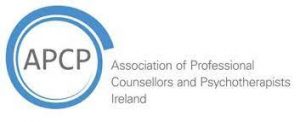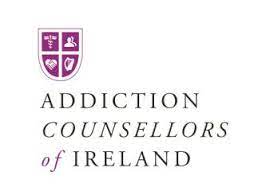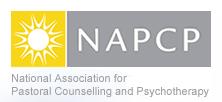Professional Accreditation
Accreditation and Regulation of Counselling & Psychotherapy
If you are considering undertaking a course in Counselling or Psychotherapy to become a professional practitioner in Ireland then you should be aware of impending changes in these fields which are likely to significantly impact on future practice. Until 2019, neither Counselling or Psychotherapy are regulated under statute, which effectively means that anyone can have used the title counsellor or psychotherapist, regardless of their qualifications or experience. It is stated governmental policy to change this situation in the public interest and much work has been done to redress this situation in recent years. In 2019, the Government – through the Minister for Health requested the Health and Social Care Professionals Council (CORU) to regulate both areas of discipline including the use of these professional titles.
Regulation under CORU (the Health and Social Care Professionals Council) will be a significant development in terms of the protection of the public. In the interim, applicants for programmes of education leading to professional recognition, need to be conscious of recommendations of minimum standards of education and training.
Since at least 2012, various Ministers associated with the Department of Health have consistently and clearly stated that the minimum educational qualifications that will be necessary for future registration with CORU will be QQI qualifications (or equivalent). In 2014, QQI published new award standards for counselling and psychotherapy. This means that programmes are required to meet these standards before being validated or awarded by QQI. This standard-setting process is likely to inform and support the regulatory process. All counselling and psychotherapy programmes at ICHAS have been benchmarked against these standards and all the programmes meet these QQI standards.
In addition to meeting the QQI award standards, programmes at ICHAS are designed to facilitate those who wish to pursue professional accreditation. Students should be aware that they need to meet the requirements of whichever professional accreditation body with whom they wish to be accredited. Programmes at ICHAS are structured with sufficient flexibility to allow for the varying requirements for pre-accreditation membership with a range of professional accreditation bodies in Ireland, including ( in alphabetical order);
- Addiction Counsellors Ireland
- Association of Professional Counsellors and Psychotherapists in Ireland
- The National Association for Professional Counselling & Psychotherapy
ICHAS Undergraduate Programmes
- BA (Hons) in Counselling and Psychotherapy
- BA (Hons) in Counselling and Psychotherapy with Addiction Studies
- BA (Hons) in Counselling and Psychotherapy with Youth Studies
These programmes lead to an academic award at Level 8 on the National Framework of Qualifications awarded by QQI. Where successful graduates wish to pursue professional accreditation for practice, they must seek such accreditation from the relevant body in accordance with the guidelines of that particular body. These programmes will contribute to the requirements for professional accreditation with these professional accrediting bodies in the fields of Counselling and Psychotherapy in Ireland and past graduates have also achieved professional recognition internationally.
These Level 8 Programmes support graduates to achieve professional accreditation with the Association for Professional Counselling and Psychotherapy; with the National Association for Professional Counselling and Psychotherapy and with Addiction Counsellors Ireland.
These programmes support graduates on their journey towards professional accreditation with these Professional Associations until CORU finalises its Regulatory standards and opens its Register.
ICHAS Postgraduate Programmes
The College offers an MA programme in Counselling & Psychotherapy which leads to the following Awards
- MA in Counselling and Psychotherapy (Person Centred Modalities)
- MA in Counselling and Psychotherapy (Integrative Modalities)
- MA in Counselling and Psychotherapy (Family Therapy)
- MA in Counselling and Psychotherapy (Psychodynamic Modalities)
- MA in Counselling and Psychotherapy (Cognitive Behavioural Modalities)
Where successful graduates wish to pursue professional accreditation for practice, they must seek such accreditation from the relevant body in accordance with the guidelines of that particular body. These programmes will contribute to the requirements for professional accreditation with relevant professional accrediting bodies in the fields of Counselling and Psychotherapy in Ireland.
Each of the Awards associated with this Level 9 programme have been benchmarked against both the European Association of Counselling (EAC) and the European Association of Psychotherapy (EAP) standards and graduates have achieved professional membership of both the APCP and NAPCP. These programmes will support graduates on their journey towards professional accreditation with these Professional Associations until CORU finalises its Regulatory standards and opens its Register.
MA in Addiction Counselling
This Level 9 programme is recognized for professional accreditation purposes by both Addiction Counsellors Ireland (ACI) and the Association of Professional Counsellors and Psychotherapists (APCP) where students meet the individual specific requirements of either Association. The programme has been designed with sufficient flexibility to allow these requirements to be met.
The College does not stipulate which Professional Associations students should choose for professional accreditation and membership. That is a matter of individual choice and students are reminded that these Associations have somewhat differing requirements. Therefore students are advised of these differences at induction to their studies and of their right to choose appropriate professional membership so that they can make informed decisions around professional accreditation. ICHAS is committed to ensuring that students have informed choices and access to professional accrediting opportunities.
Students not alone have achieved professional accreditation with the bodies named above, but many have also attained professional recognition with other national and international bodies.
Clinical Supervision
- The MA in Clinical Supervision in professional practices
- Certificate in Clinical Supervision in professional practice
These programmes are interdisciplinary programmes that lead to academic awards at Level 9 on the National Framework of Qualifications awarded by QQI. Professional regulation, licensure, and accreditation requirements vary (where they exist at all) across and within disciplines. It is important to note that various disciplines require different training types and levels. However, professional accreditation or credentialing of clinical supervisors has perhaps the longest and most established traditions in Counselling & Psychotherapy professions.
Where successful graduates wish to pursue professional accreditation for clinical supervision practice, they must seek such accreditation from the relevant body in accordance with the guidelines of that particular body. The principal programme as well as the Certificate in Clinical Supervision in Professional Practice, meet or exceed the requirements of the professional bodies in counselling & psychotherapy in terms of content, duration, contact time, and supervised clinical supervisory practice. Thus the completion of this programme will contribute to the requirements for professional accreditation with relevant professional accrediting bodies in the fields of counselling and psychotherapy in Ireland and abroad. There are currently no set accreditation requirements in other disciplines such as nursing, social care, social work, psychology, but there are professional guidelines and expected standards.
Graduates of the MA have achieved professional accreditation as clinical supervisors with the Association for Professional Counselling and Psychotherapy; the National Association for Professional Counselling and Psychotherapy and with Addiction Counsellors Ireland. There are also a number of graduates of the MA in Clinical Supervision in Professional Practice who are currently accredited with the Supervisors Association of Ireland as well as graduates who provide clinical supervision in mental health nursing.
This programme has been presented to ACI, APCP, and NAPCP for recognition towards professional accreditation for clinical supervision in Ireland as well as to the Supervisors Association of Ireland (SAI) for interdisciplinary clinical supervision and will be presented to the Nursing and Midwifery Board of Ireland (NMBI) for Category II approval for nursing & midwifery clinical supervision. Graduates have used their programme to provide clinical supervision in Mental Health Nursing services in Ireland.



























